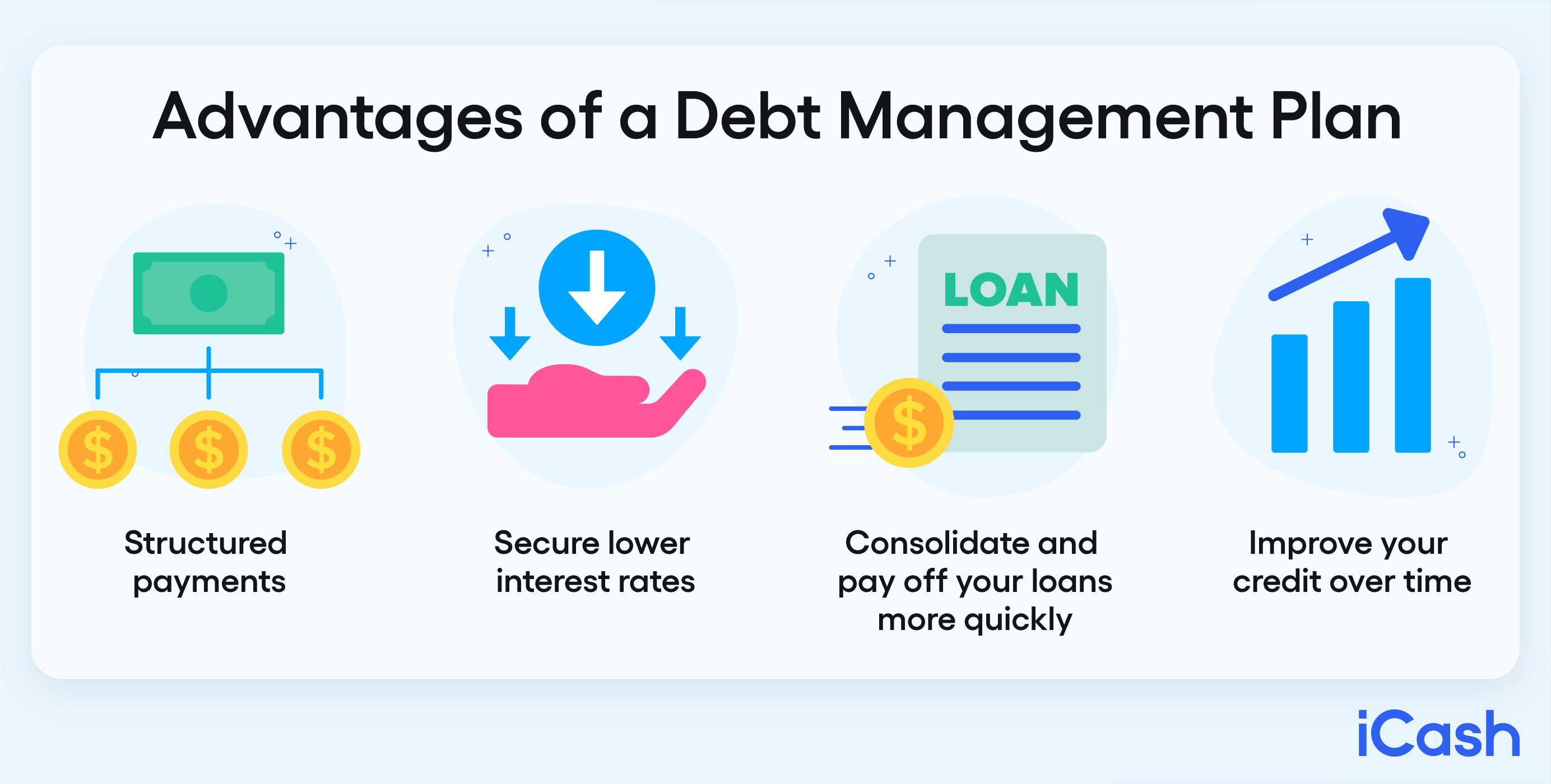Expert Tips and Techniques for Implementing a Successful Financial Obligation Administration Strategy
When it involves browsing the complexities of financial debt management, having a well-balanced plan is critical for accomplishing economic stability. Applying professional pointers and techniques can make a substantial difference in your trip in the direction of financial obligation alleviation. From assessing your present economic standing to working out with financial institutions, each step plays an essential duty fit an effective debt monitoring strategy. By recognizing the complexities of financial obligation management and adopting tested approaches, individuals can lead the way for a more safe economic future.
Analyzing Your Existing Financial Scenario
Before starting a debt management plan, it is crucial to completely examine your current financial standing. Comprehending your financial situation is the foundational step towards effectively managing and lowering your debt. Begin by compiling a detailed checklist of all your financial debts, consisting of impressive balances, rate of interest rates, and minimum month-to-month settlements. This will certainly offer a clear summary of the extent of your economic responsibilities. In addition, analyze your earnings resources and monthly expenditures to establish your non reusable earnings available for debt repayment.

Establishing a Realistic Budget Plan
Recognizing your existing economic situation lays the groundwork for developing a reasonable budget plan that straightens with your financial debt monitoring objectives and economic abilities. When producing a budget plan, it's critical to properly track your revenue, expenditures, and financial debt responsibilities. Begin by noting all incomes, including wages, benefits, and any type of extra profits. Next, detail your dealt with expenditures such as lease or home loan payments, utilities, insurance, and lending repayments. Variable expenditures like grocery stores, home entertainment, and transportation should additionally be made up. By classifying your costs, you can identify locations where you might need to cut down to liberate funds for financial debt payment.

Focusing On and Taking On Financial Debts
To successfully restore control of your financial resources and work towards financial stability, prioritizing and tackling your debts is an essential action in your debt management plan. Start by detailing all your debts, including charge card, car loans, and any type of various other impressive balances. Recognize high-interest financial debts that are costing you the most cash and prioritize paying them off first. By concentrating on these high-interest financial debts, you can conserve money in the long run and reduce the complete quantity you owe.
After determining your high-interest financial debts, think about using approaches like the financial obligation snowball or debt avalanche approach to pay them off systematically. The financial debt snowball technique entails settling the smallest financial obligations first, while the financial obligation avalanche method focuses on debts with the highest possible rates of interest. Choose the approach that lines up ideal with your monetary objectives and motivates you to maintain making progress.
Furthermore, consider discussing with creditors for lower passion rates or setting up a layaway plan if you're battling to satisfy your existing obligations. Looking for aid from a credit scores therapist or financial advisor can likewise give important understandings and guidance on exactly how to effectively tackle your debts - debt management plan services. By focusing on and resolving your debts purposefully, you can pave the method in the direction of a debt-free future and improved try here monetary wellness
Bargaining With Creditors
When participating in financial debt management, working out with lenders is a critical step in the direction of locating mutually useful remedies for financial debt payment. Open up interaction with creditors can lead to revised layaway plan, lowered passion rates, or even settlement offers. Prior to launching arrangements, it is necessary to have a clear understanding of your economic scenario, including your income, costs, and the total amount of financial obligation owed. This info will not only help you make reasonable offers however also demonstrate to financial institutions that you are committed to resolving the financial debt.

Structure Healthy Monetary Routines
Incorporating consistent budgeting practices is vital for cultivating healthy and balanced financial routines. Budgeting enables people to track their income and costs, enabling them to make enlightened decisions about their financial priorities. Establishing certain economic objectives, such as conserving for emergencies or retirement, can supply a clear roadmap for taking care of cash effectively.
One more secret element of structure healthy and balanced economic habits is living within one's means. This involves spending less than what is made and preventing unnecessary financial obligation. Identifying and taking hop over to here on a thrifty mindset between wants and needs can help people make even more sensible costs options.
Consistently checking and assessing economic declarations credit rating reports are crucial practices that promote economic recognition and obligation. By remaining notified about their economic standing, people can recognize prospective problems at an early stage and take aggressive actions to address them.
Additionally, establishing a savings habit, despite having percentages, can contribute dramatically to long-lasting monetary safety and security. Saving regularly not just develops a financial cushion for unforeseen costs but additionally promotes a sense of self-control and responsibility in the direction of finance. By continually practicing these habits, people can lay a solid structure for a steady financial future.
Final Thought
Finally, carrying out a successful financial obligation management plan calls for a complete evaluation of one's economic circumstance, the growth of a sensible budget, focusing on and taking on financial obligations, working out with creditors, and structure healthy economic habits (debt management plan services). By complying with these specialist tips and approaches, individuals can take control of their financial resources and job towards attaining monetary security and liberty from debt
Comprehending your present financial circumstance lays the foundation for creating a realistic spending plan that aligns with your financial debt administration objectives and financial abilities.To properly gain back control of your finances and work towards monetary security, prioritizing and tackling your debts is a critical step in your financial obligation monitoring strategy.After identifying your high-interest debts, think about making use of approaches like the debt snowball or financial obligation avalanche technique to pay them off methodically. The financial use this link debt snowball approach entails paying off the smallest debts first, while the debt avalanche method prioritizes financial obligations with the greatest rate of interest prices.When involving in financial obligation administration, bargaining with financial institutions is an essential action in the direction of finding mutually advantageous options for financial obligation payment.